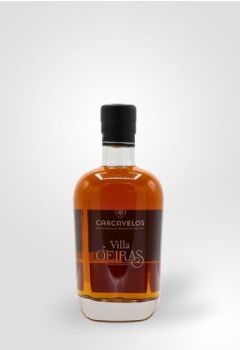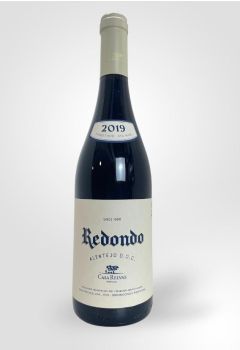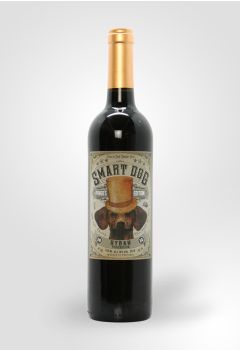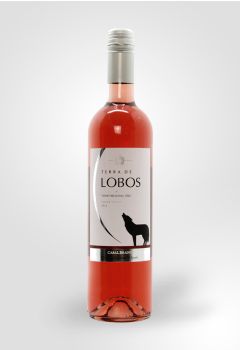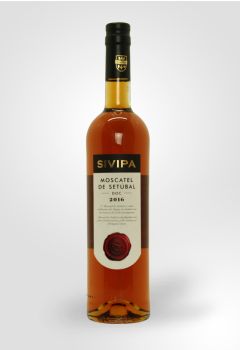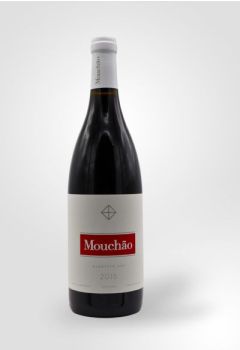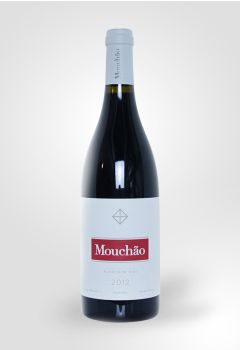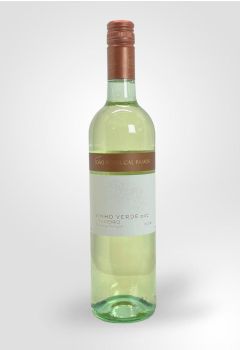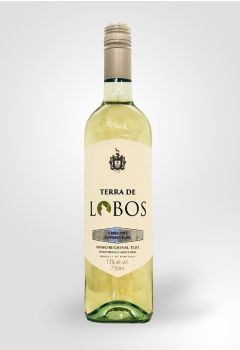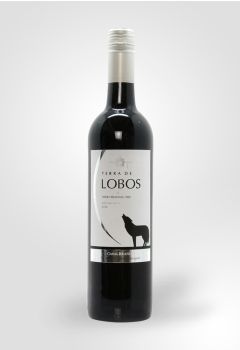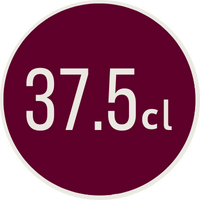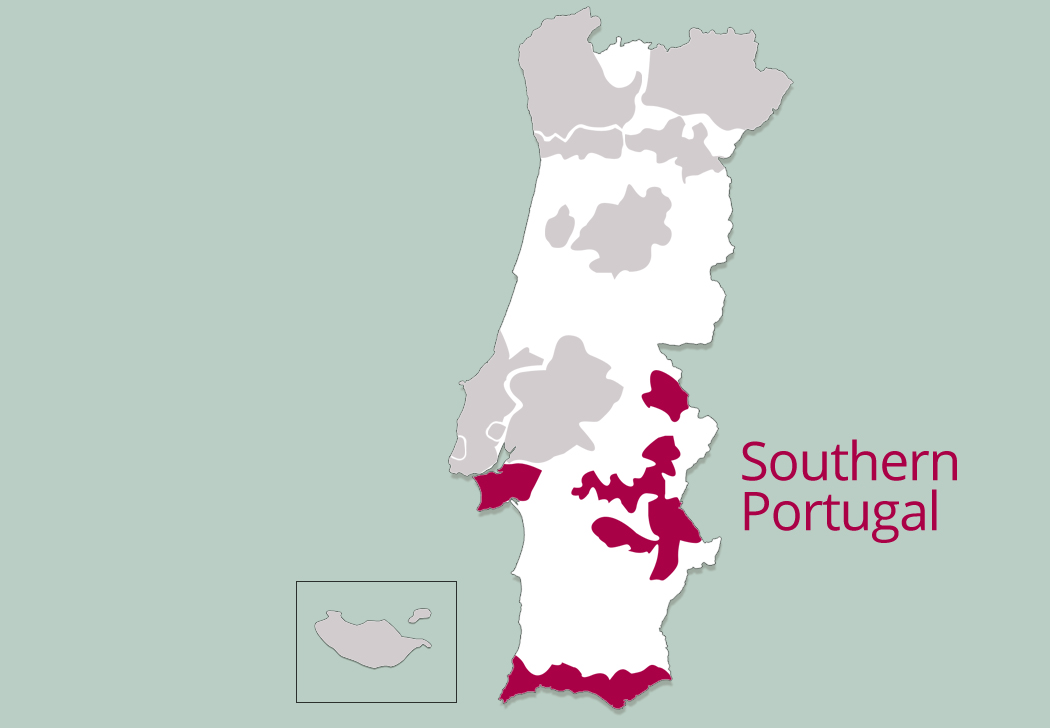
-
- Origin
- Portugal
- Carcavelos
Clear yellow golden hue. Pronounced nose of orange marmalade with a honeysuckle floral note. The palate has sweet orange & dried stone fruit with ... Read More- Origin
- Portugal
- Carcavelos
Clear yellow golden hue. Pronounced nose of orange marmalade with a honeysuckle floral note. The palate has sweet orange & dried stone fruit with ... Read More -
- Origin
- Portugal
- Alentejo
It's ripe and juicy, has a great mix of warming, dark plummy fruit and crunchy red berries, with a little lift of floral violets. There's earthy, almo... Read More- Origin
- Portugal
- Alentejo
It's ripe and juicy, has a great mix of warming, dark plummy fruit and crunchy red berries, with a little lift of floral violets. There's earthy, almo... Read More -
- Origin
- Portugal
- Alentejano
Intense aromas of red berries with some spicy notes coming through the ripe fruit flavours. The palate is smooth with soft tannins supporting generous... Read More- Origin
- Portugal
- Alentejano
Intense aromas of red berries with some spicy notes coming through the ripe fruit flavours. The palate is smooth with soft tannins supporting generous... Read More -
- Origin
- Portugal
- Tejo
A strong summer fruit character with abundance of raspberries and strawberries. This is supported by some floral notes and a touch of spice as the mou... Read More- Origin
- Portugal
- Tejo
A strong summer fruit character with abundance of raspberries and strawberries. This is supported by some floral notes and a touch of spice as the mou... Read More -
- Origin
- Portugal
- Peninsula de Setubal
Deep amber in colour, this wine is rich and smooth with a full flavour that has a strong raisin fruit character paired with caramel, citrus orange pee... Read More- Origin
- Portugal
- Peninsula de Setubal
Deep amber in colour, this wine is rich and smooth with a full flavour that has a strong raisin fruit character paired with caramel, citrus orange pee... Read More -
- Origin
- Portugal
- Alentejo
A stunning wine. Intense deep red with black currant aromas and a touch of since on the nose. On the palate it exudes the classic Mouchao spice, black... Read More- Origin
- Portugal
- Alentejo
A stunning wine. Intense deep red with black currant aromas and a touch of since on the nose. On the palate it exudes the classic Mouchao spice, black... Read More -
- Origin
- Portugal
- Alentejo
A wine with an intense garnet colour and aromas of black fruit jams, ripe olives, mint and spices. Its structure is distinct, possessing a clear fresh... Read More- Origin
- Portugal
- Alentejo
A wine with an intense garnet colour and aromas of black fruit jams, ripe olives, mint and spices. Its structure is distinct, possessing a clear fresh... Read More -
- Origin
- Portugal
- Douro
Floral aromas are present throughout with this fresh and vibrant Vinho Verde. There is plenty of citrus fruit, balanced by generous minerality on a de... Read More- Origin
- Portugal
- Douro
Floral aromas are present throughout with this fresh and vibrant Vinho Verde. There is plenty of citrus fruit, balanced by generous minerality on a de... Read More -
- Origin
- Portugal
- Tejo
A plethora of aromas detectable on the nose with apple, citrus and tropical fruits leading the way. The palate is elegant and balanced with great stru... Read More- Origin
- Portugal
- Tejo
A plethora of aromas detectable on the nose with apple, citrus and tropical fruits leading the way. The palate is elegant and balanced with great stru... Read More -
- Origin
- Portugal
- Tejo
Aromas of red fruit, cassis and some floral overtones fill the nose, with a hint of spice. In the mouth, the wine is rich with a medium to full body a... Read More- Origin
- Portugal
- Tejo
Aromas of red fruit, cassis and some floral overtones fill the nose, with a hint of spice. In the mouth, the wine is rich with a medium to full body a... Read More
There is now a peculiar situation where the most modern of wineries share the region with historic establishments who still tread the grapes or rely on clay pots and underground cellars for their ideal conditions.
Styles of Wine
Setúbal, to the south of Lisbon and encroached upon by urban sprawl, produces sweet white wines from the Muscat grape but red wines are where the most progress is being made. Whether traditionally or technologically produced, they can be well-blanced and full-flavoured. The whites have got some catching up to do.
Key Vines
Periquita is a favoured red grape and Aragonez (known as Tinta Roriz farther north), Ramisco, Trincadeira and many others are joined by those international interlopers Cabernet Sauvignon and Merlot. Muscat is the white grape of sweet Setúbal and Arinto, Roupeiro and Malvasia have been joined by the ever dependable Chardonnay.
Climate and Conditions
Hot and dry tend to sum up Southern Portugal. Heat is a huge problem, and there are few rivers that can provide irrigation. This makes viticulture a very great challenge, but ironically it allows the cork tree to thrive and provide the means for closing the bottle.

